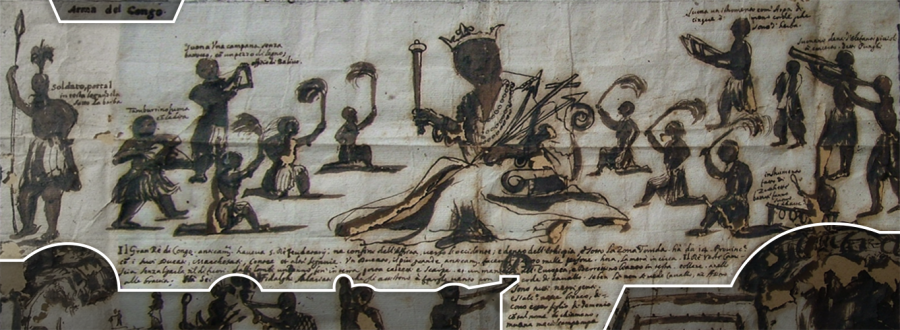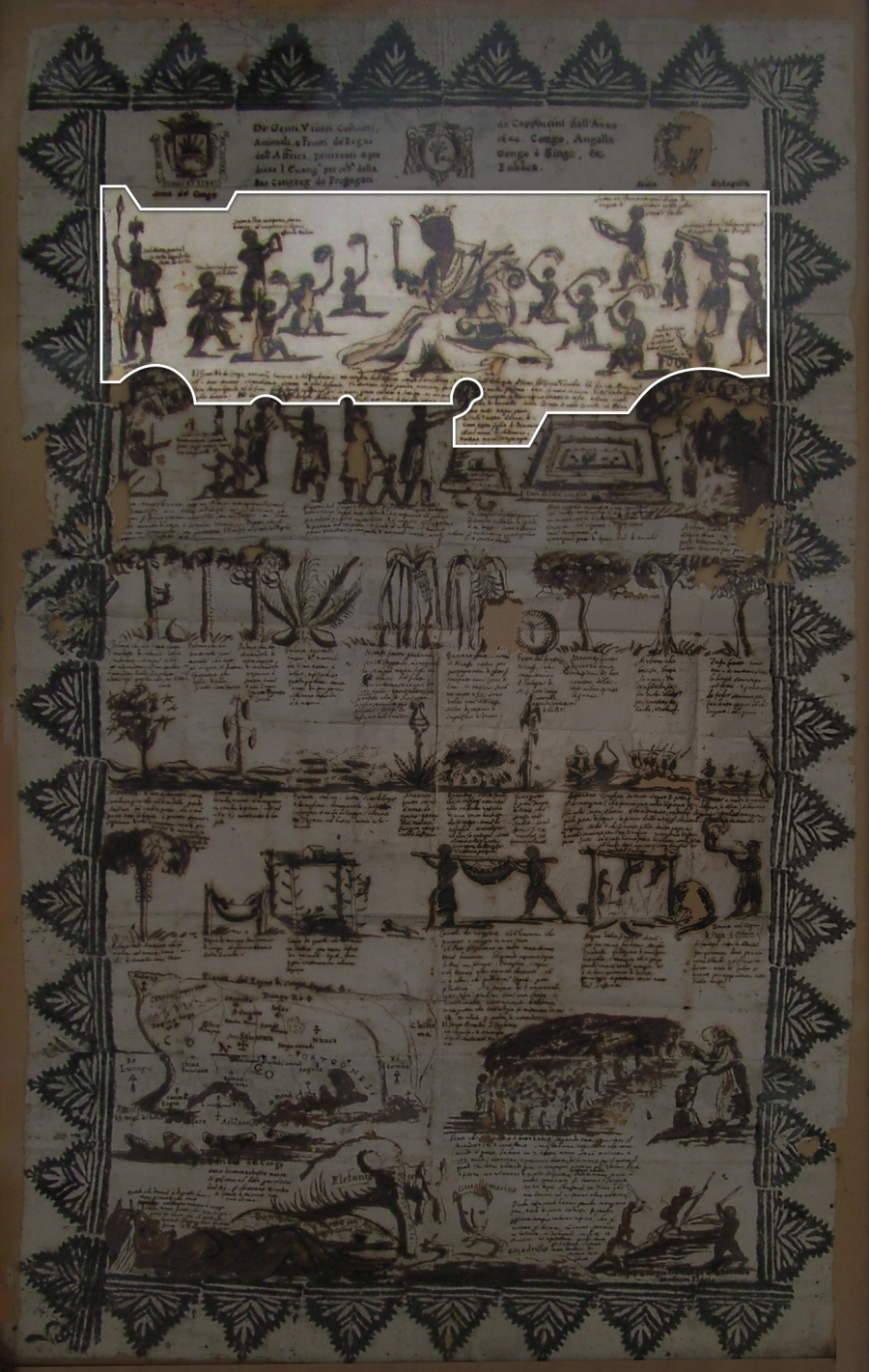Court of Garcia II of Kongo
Text at the bottom
Il Gran Rè di Congo anticamte haveva 5 Rè feudarij ne confini dell’Affrica verso l’occidente e dentro dell’Ethiopia disotto la Zona Torrida há da 14 Province cõ i suoi Duccati, Marchesati, contee et altri signorie. Un Ducato, il piu grande, anticamen[te] faceva [. . .] 400 mille persone. Hora, la metà in circa. Il Rè veste Camiscia senza ligarla al di fuori, dalli gambi un Panno fin’in terra porta calzetti e scarpe et un mantello all’Europea, e Berrettino bianco in testa, collare, anelli alle braccia.1 Hà sei [. . .] Fidalghi2 salariati che gli assistono à fargle vento con code di cavallo se ben là non si vede Cavallo, nè Asino. Sono tutti negri genti e si alco nasce bianco, dicono esser figlio di demonio cõ tal nome lo chiamano, muana macaliampampa.3
The Great King of Kongo had in the past 5 vassal kings in the confines of Africa towards the West and within Ethiopia below the Torrid Zone. He has some 14 provinces between his Dukedoms, Marquessates, Earldoms, and other fiefs. A Dukedom, the biggest, formerly had […] 400 thousand people, now it has about half. The King wears a shirt without tying it in front, on the legs a cloth down to the ground, he wears stockings and shoes and a coat in the European style, and a small white cap on the head, necklaces, rings around the arms. He has 6 […] salaried Fidalghi who serve him in fanning him with horsetails even if there are no horses or donkeys there. They are all black people and if one is born white, they say they are the son of the devil, they call them by the name of muana macaliampampa
Labels for attendants from left to right
Soldato, porta l […] in testa legandola sotto la barba / Soldier, wears the […] on the head, tied under his beard
Tamburrino suona cõ le dita / Drummer plays with the fingers
Suona Una campana senza battocco, cõ un pezzo di legno, offizio di Balivo / He rings a clipper-less bell with a piece of wood, office of the bailiff
Suona un istromento com’Arpa di cinque ò meno corde, che sono d’herba / he plays an instrument like a Harpe with five or less cords, which are made of grass
Suonano denti d’elefanti piccioli à concerto, detti Punghi4 / They play in concert small elephant teeth called Punghi
Instrumento fatto di zucchette battute fanno suono ad arte / Instrument made of little gourd struck they make an artful sound
- 1About Kongo regalia and sartorial style see Fromont, The Art of Conversion, 41-43.
- 2Italianized plural of the Portuguese fidalgo: nobleman.
- 3The ca. 1650 Latin, Spanish, Kikongo dictionary translates natus or son as muana and diabolus or devil as Ncariampempa, another transliteration of the term seen here, later recorded in the late nineteenth century as Nkadi ampenba in W. Holman Bentley, Dictionary and grammar of the Kongo language, as spoken at San Salvador, the ancient capital of the old Kongo empire, West Afrika [and Appendix] (London: Baptist Missionary Society and Trübner & Co., 1887), 378. See also Vocabularium Latinum, Hispanicum et Congense, 1651, Fondi minori 1896, Mss. Varia 274, 60v, 30r, Biblioteca Nazionale Vittorio-Emmanuele II di Roma, Rome.
- 4From Kikongo, mpungi: tusk of ivory.


Add new comment